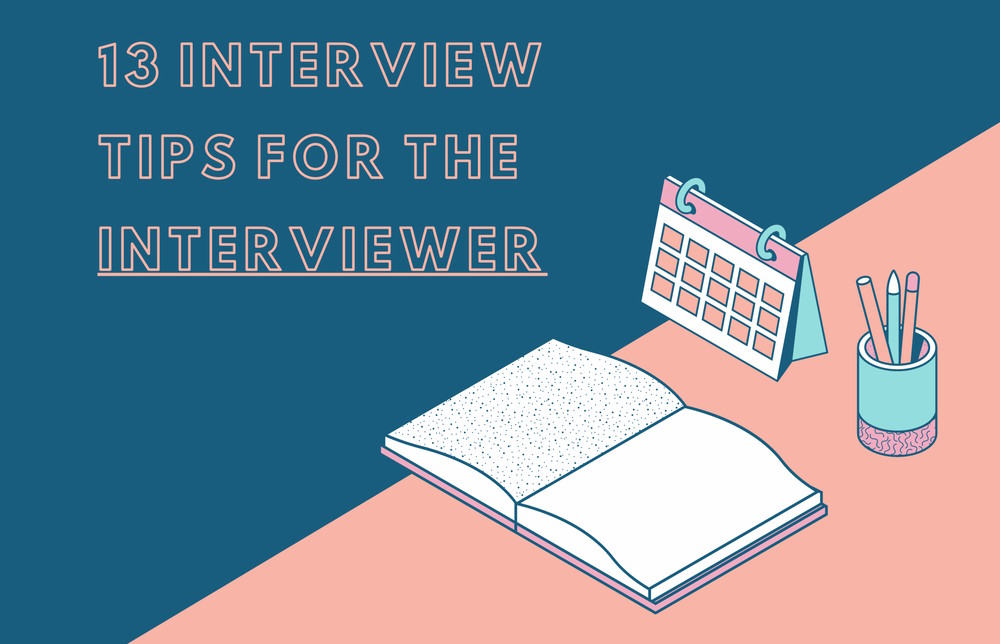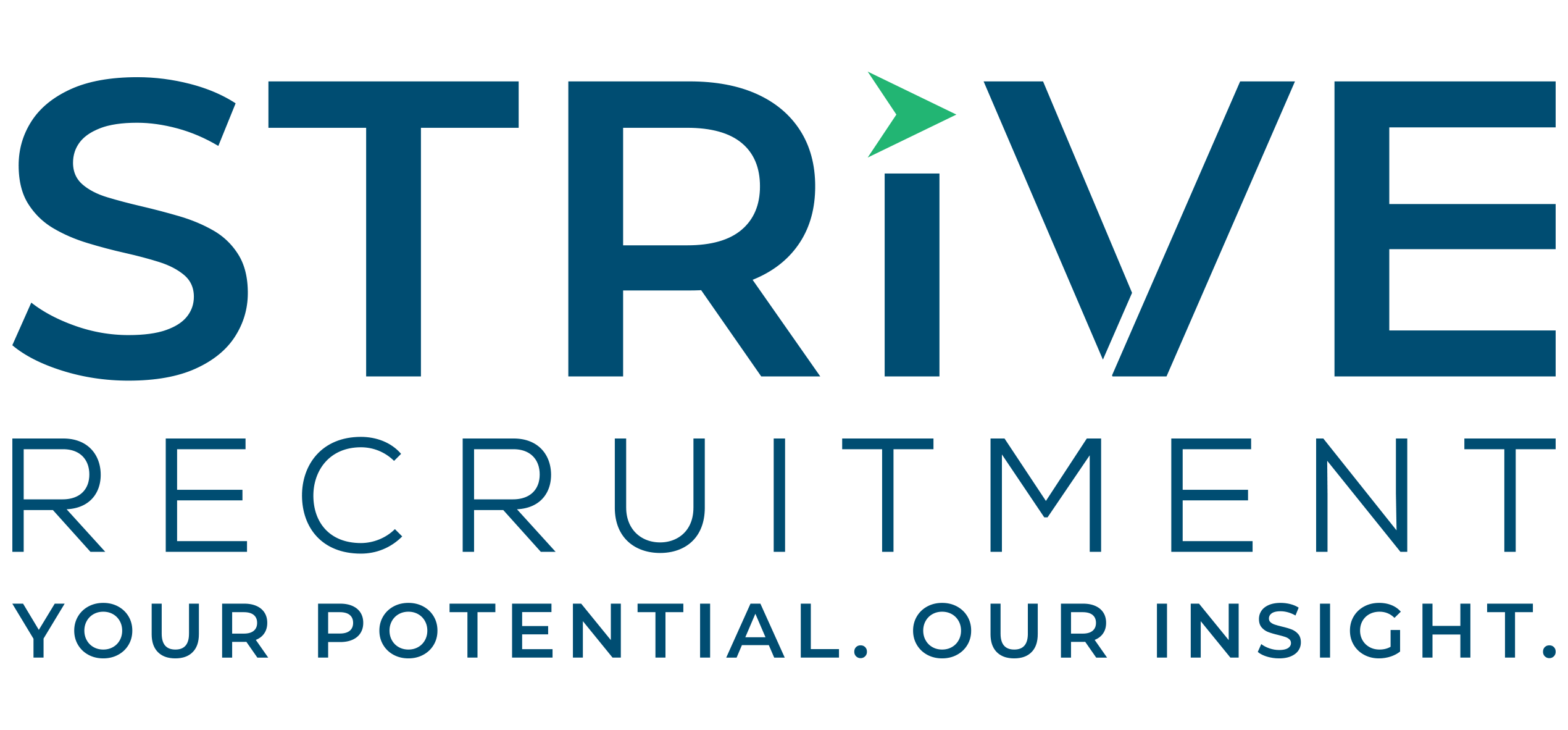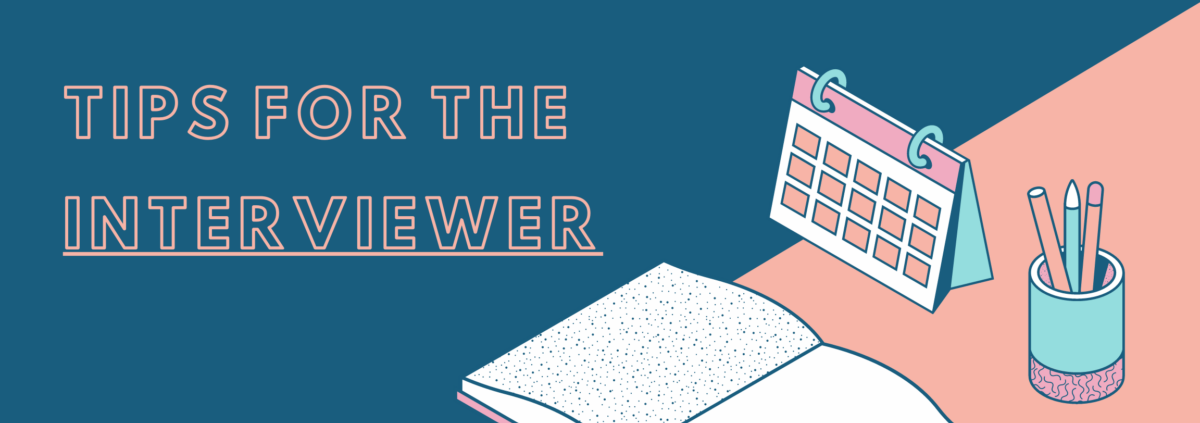13 Interview Tips for the Interviewer
13 Interview Tips for the Interviewer
By: Ben de la Fosse
2021 is well underway. Goals are set, business objectives are outlined – now it’s time to deliver. Organizations will be going into overdrive during the next few months, hiring a new crop of talent to join their team with the incentive of helping them achieve their said goals and objectives. Due to the growing demand for hiring, I thought it would be beneficial to provide several key interview tips to help identify the right candidate for any team.
We have it ingrained in us that the perfect candidate means hiring the person with the highest level of work experience or most impressive qualifications, right? Well, that may totally not be the case.
TIP #1 It is more important to focus on finding someone whose values, personality and approach to work fit with the company’s culture whilst ensuring they have the proper experience to manage the required tasks and provide value with their work.
Is this your first time conducting an interview?
For those of you who are new to a managerial role or in a new job requiring you to build out your team, this might be the first time you have sat on the other side of the interview desk. For some, the interview may be more daunting to you, the interviewer, than it is to the actual candidate. Don’t freak out this is natural!
TIP #2 Make sure you seek advice from your in-house recruitment team, current supervisors, and previous mentors – knowledge is key!
Before the interview.
You may have an in-house recruitment team, if so, make sure you ask them to describe the hiring process and what part you will play in it.
TIP #3 Have a plan: Make sure you have developed a structure for your interview and have several questions prepared that you want to ask. Make a list of questions that directly relate to the responsibilities of the job. If you are looking for guidance, one idea is to reach out to those doing the job now or key stakeholders who interact with this role.
TIP #4 Résumé review: Make sure you have reviewed the résumé thoroughly to identify any red flags that you want to get more clarity on – gaps in employment, short-term positions, job-hopping, are they overqualified, have they taken a step backwards in their career? Make note!
The interview itself.
TIP #5 First impressions count – this works both ways! Make sure you are a welcome host and try to break the ice with some small talk. A key question you could ask here is, “how was the journey in?” This will give you a sense of their thoughts regarding what the daily commute will look like for them. For some, this is a reason they turn down an offer or leave shortly after joining the company.
TIP #6 Outline the hiring process – providing this gives structure and focus to the interview. It allows the candidate to understand what to expect, putting them at ease and ensuring a smooth interview.
TIP #7 Open questions: Whilst you will want to lead the interview, make sure you are asking “open questions” (who, what, where, when, how) so your candidate can “open up” and provide descriptive answers.
TIP #8 Take notes – I would highly recommend having a copy of the candidates résumé to make notes on (explanations of gaps etc.), as well as a notebook for more general comments. This action will help when reviewing candidates after the interview and allows you to jot down follow-up questions, particular experience not evident on their resume or areas of concern to investigate further.
TIP #9 Ask behavioural questions – These are crucial to any interview as they require the candidate to share examples of specific situations and allows you to get a better feel for their skill set, personality and how they will act when in the job. This will help you to evaluate their fit with your company culture.
Examples:
– Give me an example of a time you faced a conflict while working in a team. How did you handle that?
– Tell me about a time you were under a lot of pressure. What was going on, and how did you get through it?
– Give me an example of a time you managed numerous responsibilities. How did you handle that?
– Give me an example of a time when you showed initiative and took the lead.
– Think about the most exciting and energizing aspect of your current or most recent position. What did you specifically enjoy about it? Why?
– Tell me about the toughest decision you’ve had to make in the past six months.
TIP #10 Turn the interview around – the candidate must have the opportunity to ask you questions. After all, the candidate may have several opportunities and want to know why this is the role for them. If a candidate doesn’t have any questions then, perhaps you have done an excellent job at explaining the role however, I believe it could be an indication of their interest levels and engagement as you would hope there is something they want to know about the role or the company. If salary and vacation are all they ask, this is a red flag as it shows they only have their best interests at heart.
Post-interview.
TIP #11 Review – It depends on what the recruitment process looks like at your particular company but, it is good practice to review with another member of the team be it, the recruitment / HR team, your supervisor or key stakeholders. This is a helpful step as it allows you to bounce your thoughts off someone who may have a more objective outlook. Be sure to go in with your summary and an idea of the candidate’s strengths and weaknesses.
TIP #12 Follow up – Be sure to follow up with the candidate. They took the time out of their day to apply and interview for the role so, it is only courteous to follow up with them and inform them of your decision regardless of the outcome. Providing them with feedback will also help them to learn and develop.
Looking to mix up the interview process?
You can always get a bit creative with your interview to try and see what the candidate is like in a more natural setting.
TIP #13 Change the venue of the interview: Show the candidate around the office/plant and introduce them to some of the team. This allows you to see how they naturally react; are they polite? do they treat everyone with respect? do they show an interest and ask smart questions?
The benefit to this is, it gives the candidate a better feel for the job, the work environment and the people they will work with and enables you to assess whether they are a culture fit.
Find what works for you!
As individuals and companies, we are all different. The important thing is to find what works best for you and what allows you to gain as much information as possible to make the right decision. Of course, we are only human and won’t be correct 100% of the time, however, hopefully, this helps you build a strong, high performing team full of employees who are engaged with their work and the company they work for.

Example behavioural questions sourced from:
The Muse – https://www.themuse.com/advice/30-behavioral-interview-questions-you-should-be-ready-to-answer
Glassdoor- https://www.glassdoor.com/employers/blog/11-must-ask-behavioral-interview-questions/


